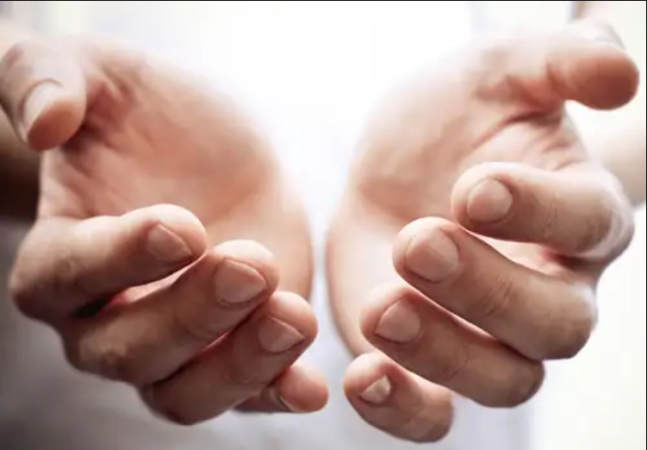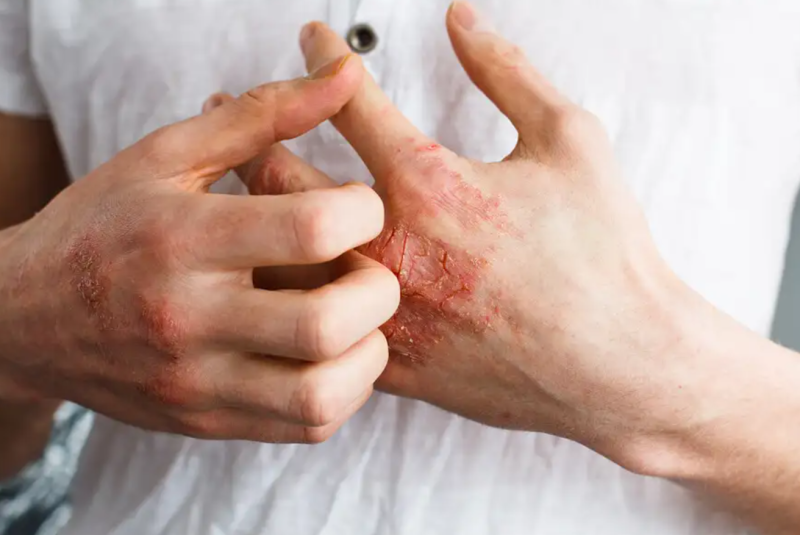
Itchy palms can have many causes, some minor or severe, such as dryness, to other conditions that require medical treatment.
Here we tell you the most frequent reasons why itchy palms occur and some secrets to improving them. In any case, remember that consulting your doctor is essential if you have any doubts.
Contents
Hand care
We must remember that our hands are our most exposed work tool, which comes into contact with everything surrounding us. Therefore, they constitute one of our body’s most vulnerable and susceptible parts.
So, it is not strange that, on occasions, we feel some irritation, allergic reactions, or itching in the palms of our hands due to contact with various elements or substances, such as dust, rust, cement, lime, gasoline, detergents…
When this becomes chronic or recurrent, even extending to the fingers, it can become very annoying and disabling because we are limited in performing some tasks.
Most frequent causes of itching in the palms of the hands
As we have mentioned, the causes of itching in the palms of the hands can be very diverse. Let’s see below which are the most common.
1. Dry skin
Fortunately, the most common cause of itchy palms is also one of the less severe causes of the disorder, and this is dry skin.
When the skin is dry, it lacks hydration and becomes irritated, losing its protective barrier. As a result, cracks appear, and the annoying sensation of itching in the palms of the hands becomes evident.
2. Contact dermatitis
Contact dermatitis is usually the result of direct contact with a substance or object that has agents that are irritating to the skin.
In addition to itchy palms, contact dermatitis can cause the skin to become red, irritated, or even painful and inflamed.
Some of the substances that most frequently cause this type of dermatitis are, for example, dyes, cleaning chemicals such as detergents, or cement. These substances are usually just as irritating to anyone.

3. Allergic dermatitis
The symptoms that appear are the same as in contact dermatitis. The difference is that, in this case, the substance that causes dermatitis is not an irritant in general but rather something concrete and particular against which the allergy manifests itself in a person.
Some examples of substances a person may be allergic to are latex, some plants, or cosmetics such as nail polish. These can be irritants that cause your hands to itch.
4. Dyshidrotic eczema
The exact cause of dyshidrotic eczema is not known. When it appears, it causes fluid-filled blisters on the palms of the hands and feet, scaling, and a burning and itching sensation.
It usually occurs more in spring and autumn or in stressful situations. As the exact cause that causes it is not known, no measures can be taken to prevent it from appearing. Dyshidrotic eczema tends to flare up several times throughout a patient’s life, manifesting in various ways, including itchy palms.
5. Mushrooms
The space between the fingers of the hands is a place where heat and humidity accumulate. These are the perfect conditions for mushrooms to grow. They also cause irritation and flaking, quite itchy even on the palms of the hands.
6. Pustular psoriasis
It is a type of presentation of psoriasis that affects the palms of the hands and feet. Its exact cause is unknown, although, like dyshidrotic eczema, it is believed to be related to stress or autoimmune phenomena.
Pus-filled papules appear on it, which are not infectious. They are very annoying and cause pain and itching. The treatment is similar to that used in general psoriasis.

7. Other allergic reactions
The palms of the hands may be itchy due to other allergic reactions, which can be caused by the consumption of food or medicines and by insect bites.
How to treat itchy palms?
As so many causes can cause it, there are also many different ways to treat and prevent itchy palms. For example, corticosteroid ointments may be helpful in conditions involving inflammation or allergy.
In psoriasis or dyshidrotic eczema, it will be essential to avoid stressful situations. Of course, not handling or touching the substances that cause it will be crucial in cases of allergy or contact dermatitis.
In addition to these specific measures, it is also essential, in general, that we maintain adequate hand hygiene and that we try to keep them hydrated but not wash them excessively.
When to check if we have itchy hands?
Many causes can cause this annoying symptom, sometimes challenging to calm down. If itching and lesions such as blisters and inflammation appear, we must go to the specialist, who will decide the diagnosis and the best treatment.
We must also take care of our hands since they are one of the most exposed parts of our body. With our hands, we come into contact with much of the world and other people.